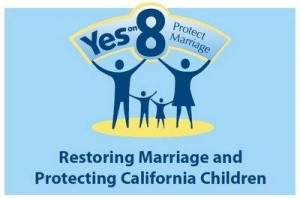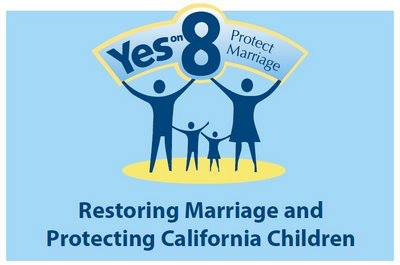Note:
This first appeared as an editorial on September 7, 2010 in BYU’s The Daily Universe. It was taken off the website the same day it was printed, in the early afternoon.
 Perry v. Schwarzenegger, the recent United States District Court case that overturned Proposition 8, highlighted a disturbing inconsistency in the pro-Prop. 8 camp.
Perry v. Schwarzenegger, the recent United States District Court case that overturned Proposition 8, highlighted a disturbing inconsistency in the pro-Prop. 8 camp.
The arguments put forth so aggressively by the Protect Marriage coalition and by LDS church leaders at all levels of church organization during the campaign were noticeably absent from the proceedings of the trial. This discrepancy between the arguments in favor of Proposition 8 presented to voters and the arguments presented in court shows that at some point, proponents of Prop. 8 stopped believing in their purported rational and non-religious arguments for the amendment.
Claims that defeat of Prop. 8 would force religious organizations to recognize homosexual marriages and perform such marriages in their privately owned facilities, including LDS temples, were never mentioned in court. Similarly, the defense was unable to find a single expert witness willing to testify that state-recognized homosexual marriage would lead to forcing religious adoption agencies to allow homosexual parents to adopt children or that children would be required to learn about homosexual marriage in school.
Four of the proponents’ six expert witnesses who may have been planning on testifying to these points withdrew as witnesses on the first day of the trial. Why did they go and why did no one step up to replace them? Perhaps it is because they knew that their arguments would suffer much the same fate as those of David Blankenhorn and Kenneth Miller, the two expert witnesses who did agree to testify.
Judge Vaughn Walker, who heard the case, spent 11 pages of his 138-page decision meticulously tearing down every argument advanced by Blankenhorn before concluding that his testimony was “unreliable and entitled to essentially no weight.” Miller suffered similar censure after it was shown that he was unfamiliar with even basic sources on the subject in which he sought to testify as an expert.
The court was left with lopsided, persuasive testimony leading to the conclusion that Proposition 8 was not in the interest of the state and was discriminatory against gays and lesbians. Walker’s decision is a must-read for anyone who is yet to be convinced of this opinion. The question remains that if proponents of Prop. 8 were both unwilling and unable to support even one rational argument in favor of the amendment in court, why did they seek to present their arguments as rational during the campaign?
It is time for LDS supporters of Prop. 8 to be honest about their reasons for supporting the amendment. It’s not about adoption rights, or the first amendment or tradition. These arguments were not found worthy of the standards for finding facts set up by our judicial system. The real reason is that a man who most of us believe is a prophet of God told us to support the amendment. We must accept this explanation, along with all its consequences for good or ill on our own relationship with God and his children here on earth. Maybe then we will stop thoughtlessly spouting reasons that are offensive to gays and lesbians and indefensible to those not of our faith.





From an entirely different perspective, this (proposition 8) has less to do with homosexuality than it does with a political/social/religious philosophy that believes in legislating morality.
Government should never have interfered with marriage. There would be no issue if individuals and their religious bodies were left alone to decide what is marriage and how it should be created, or not.
I sense certain legalistic personalities behind this. The idea that human beings must be controlled by governmental institutions and their laws is not universally accepted by all human beings.
The last paragraph is meaningful–
I believe that. And I believe it contradicted the political neutrality stance of the church.
As a,gay mormon pro gay marriage activists proposition 8 does have to do with gays.in california its now legal for gays to marry! Dont get mad at the goverment stepping in about marriage if it wasnt for all of us in the gay lesbian bisexial transgender comminities and steaight families as well all supporting us in gay marriage by gathering together in lsrge large groups and rallies and protesting and having the labor council and unions behind us fighting for equal gay marriage we wouldnt have gay marriage today its we the people in the community that did it it wasnt the goverment alone. Do you honestly support gays being discriminated? Its not going away eleven other states have gays legally married as well as california it was good to see in the utah pride that lds church members supported utah pride and supported the gay lrsbian transgender communities and it was great to see mormons at the washington dc march for equal gay marriage for gay mormons many lds members supported the march as well as other denominations
No, it just means that the LDS Church was shell-shocked by all the unhinged, borderline psychotic public display and hatred that got thrown at them, and disheartened by the lack of support from allies. Didn’t have a lot of desire to repeat that again.
You know those “I’m Afraid” ads that went on the air in California back during the campaign.
I thought they were a load of alarmist crap at the time.
But having seen the subsequent behavior of the pro gay marriage crowd, I’m actually starting to think maybe the ads had it exactly right.
Wait, what exactly does that have to do with this article? Are you saying that LDS expert witnesses got intimidated into not testifying, and the church backed down because of the backlash? And what “lack of support from allies”? There are still plenty of Republican politicians, not to mention a whole industry’s worth of right wing pundits, who mince no words in condemning gay marriage.
Seth R.,
Comment yes i think the lds church backed off and were intimidated because the church did experience a,backlash at them as a gay mormon activists those proresters that were protestung in front of the temples doing property damage do not represent the majority of gay activists in the gay lesbian bisexual transgender community thats not how the majority of us gays in the LGBT community do activistism i will say this i was very happy to see the lds church members in this years 2013 salt lake city pride support the LGBT community. It was heart warming to see lds church members and families and bishops from all over the world in the washington dc march of equal marriage act for gay marriage for mormons
I just read this and I have to say that I don’t agree with it.
I can’t understand why Prop 8 would be unconstitutional when it was a Proposition AMENDING THEIR CONSTITUTION. How can something be unconstitutional when it amends the state constitution? It can’t.
And as for the equal protection argument, it doesn’t hold up either. The truth is that many people are just uncomfortable redefining what marriage is, and it has nothing to do with the morality of gays. If we redefine marriage, regardless of genitalia, why not allow marriage of whomever, regardless of the number (polygamy)? Why must it be between consenting adults? The slippery slope this creates is why it lost. And it was black, church going, Obama Democrats that allowed it to win- not the Mormons. They surely helped, but black Obama voters allowed it to win, and of course, Obama himself supported traditional marriage at the time.